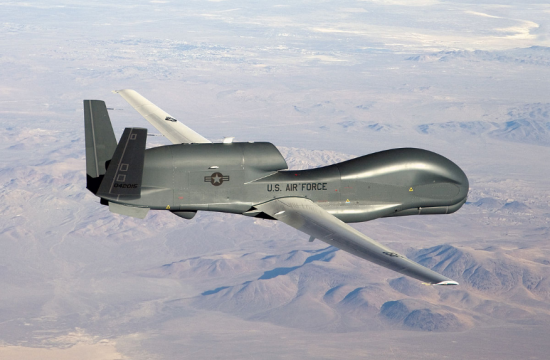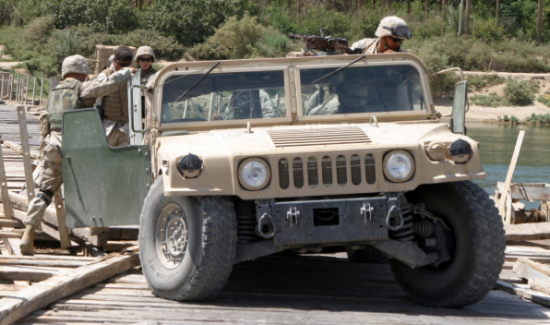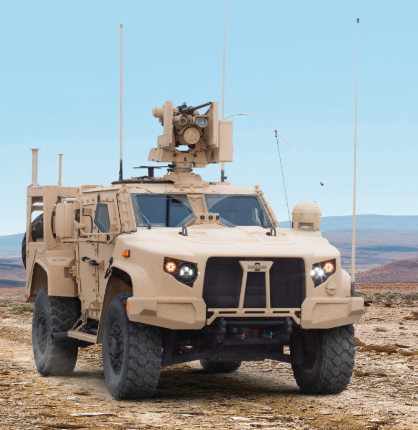The next issue of The Fleet Street Letter Monthly Alert drops tomorrow. As I mentioned yesterday, myself, Nickolai Hubble and Charlie Morris will all be issuing our predictions as to what will happen next year. As we’re in a festive mood, I’ll share a snippet of what is rapidly becoming a bumper issue.
This particular prediction doesn’t contain any investment plays – you’ll need a subscription if you want your hands on those. But if I’m right, there will be broad implications for investors, and everyone else. Next year, I expect Donald Trump, or another heavyweight in Washington to declare the War on Terror to be over.
This may seem very unlikely considering the grim events which transpired on London Bridge last week. It should be noted that I am referring to the US specifically and not the UK, and that when I say War on Terror, I am referring to the US’s vast military deployment in the Middle East; domestic anti-terror operations will of course remain ongoing throughout the West.
But “amateurs study tactics. Professionals study logistics” as the saying goes. And as you’ll see below, the US’s logistics wing is not planning for another decade of fighting insurgents in the Middle East – and it’s only a matter of time before the political rhetoric catches up to it.
Prediction #3: The war on terror is declared over as Cold War II takes centre stage
The US Air Force’s proposal to axe the majority of its massive surveillance drones which have become symbolic of the War on Terror would be a surprise to anyone unaware of the Second Cold War. But in the context of the great struggle now afoot between East and West, their removal only makes sense – these massive lummoxes of the sky have no defences and are only suited to vast defenseless deserts typified by the War on Terror.
Don’t worry – we’re still bullish on drones following our issue earlier this year and see them as the forefront of proxy conflict. But the Global Hawks which peered over Iraq and Afghanistan are now relics, in need of a replacement befitting of the US’s new great foe.
 Source: WikiCommons
Source: WikiCommons
From Foreign Policy:
The Air Force has proposed retiring as many as 21 of its 35 RQ-4 Global Hawk high-altitude drones, which currently collect intelligence across the Middle East and elsewhere, as part of a series of steep cuts to legacy programs, current and former U.S. defense officials told Foreign Policy. The proposal has been submitted to the Office of the Secretary of Defense for review as part of annual budget negotiations…
The proposed cut is part of the Pentagon’s shift from the counterterrorism fight of the last few decades toward so-called great-power threats from China and Russia… Both China and Russia are increasingly able to challenge the U.S. military’s superiority through a wide variety of sophisticated missiles, air defenses, and electronic capabilities that could destroy key U.S. and allied forces—even U.S. aircraft carriers.
The Pentagon’s challenge, then, is to invest in building next-generation systems that can penetrate Chinese and Russian defenses—the new B-21 stealth bomber, hypersonic missiles, and others. But to do so, the department needs cash. So, the Pentagon, led by Defense Secretary Mark Esper, has embarked on an effort to review legacy programs to see which ones it can live without.
“The U.S. military will need to undergo dramatic change to prepare for possible attacks from China or Russia,” wrote Elbridge Colby, a former Pentagon official, in a recent feature for Foreign Policy.
Esper’s guidance states that “no reform is too small, too bold, or too controversial to be considered,” then-Acting Air Force Secretary Matthew Donovan said in September, noting that the Air Force “is leading the way with bold and likely controversial changes to our future budgets.”
“We need to shift funding and allegiance from legacy programs we can no longer afford due to their incompatibility with future battlefields and into the capabilities and systems that the nation requires for victory,” Donovan said. “There’s no way around it.”
The Global Hawk, which first deployed in 2001 and is built by Northrop Grumman, is one of the logical cuts, experts said. As a small fleet—just three dozen planes—the aircraft is difficult to maintain due to scarcity of parts, but more importantly it is vulnerable to enemy fire in hostile airspace. With a wingspan of 131 feet, it is easily spotted by radar and has no defensive systems.
“It was well suited to go against terrorists, but against a threat like China it just won’t survive,” said Loren Thompson of the Lexington Institute, adding that flying a Global Hawk over Chinese airspace would be “suicidal.”
And it ain’t just the Global Hawks that are going. The US military’s misadventures in the Middle East involved with counter-insurgency operations were plagued by improvised explosive devices (IEDs). Their soft-skinned Humvees (the High Mobility Multipurpose Wheeled Vehicle: HMMWV) were easily blown apart by roadside bombs, being built with little armour with high mobility in mind when the last Cold War was still afoot.
 The HMMWV. Source: US National Archives
The HMMWV. Source: US National Archives
Eventually, the Joint Light Tactical Vehicle (JLTV) programme was launched in 2006 to create a heavily armoured vehicle which would solve the issue of IEDs. And in June this year Oshkosh ($OSK) finally delivered the first batch of them. Huge, hulking beasts on four wheels, so heavily armoured that they have to automatically level themselves whenever they stop, to ensure that those within can easily open their 180 kilo doors. They also has two cup holders and phone chargers inside – both heavily requested by the troops.
 Source:WikiCommons
Source:WikiCommons
But it’s too late. The War on Terror is no longer the priority of Washington – Cold War II is. It’s not IEDs the Pentagon is looking to defend itself from – it’s Chinese tanks and planes forces. Patrolling Middle Eastern territories in 4x4s is no longer the mission Washington prepares for – it’s sinking Chinese ships with artillery and shooting down their jets. The JLTV and the massive Chinook helicopters to carry them now appear totally unsuited to the task at hand.
From Defense News:
Legacy programs built for the conflicts in Afghanistan and Iraq are looking less like vital capabilities and more like bill-payers for the Army, as the service transitions towards a focus on conflict with Russia and China.
In a small Tuesday roundtable with reporters, Army Secretary Mark Esper fielded a number of questions about the future of the Joint Light Tactical Vehicle and the CH-47 Block II Chinook, a line of inquiry he tied into a recent meeting between Army leadership and officials at U.S. Indo-Pacific Command.
According to Esper, the Army reached out to INDOPACOM leadership to request a meeting, which eventually happened in Hawaii, in order to discuss how the service is developing capabilities to match up with China.
Asked which capabilities he sees as vital to the Pacific, Esper identified long range precision [artillery] fires as “front and center,” which would be used to “hold at bay” Chinese ships. He then added future vertical lift, air and missile defense, and modernized networks as other key areas they briefed INDOPACOM on.
That discussion happens as the service intends to cut the planned JLTV buy and end procurement of the CH-47 Block II for conventional forces, something Esper said was a direct result of the Army leaning into the National Defense Strategy.
Those two vehicles were designed and procured in “the context of Afghanistan and Iraq,” and hence just not as relevant anymore, Esper said.
“Why the [CH-47s]? Got to carry a heavier payload and fly higher in a hotter climate. What was the heavier payload? JLTV. What drove JLTV? IEDs in Afghanistan and Iraq,” Esper argued. “In many ways they were designed for a different conflict. Doesn’t mean we won’t use them in future conflicts, but now my emphasis has to be on rebuilding my armor, rebuilding my fighting vehicles, having aircraft that can penetrate Russian and Chinese air defenses, that can shoot down Russian and Chinese drones and missiles and helicopters and fixed-wing aircraft.
“We’re in this transition period and some folks are caught in that transition, and that’s what we’re up against.”
I reckon 2020 will mark an ever deeper understanding by investors and the public at large that this is not simply a “trade war”, but a Cold War, with all the overt and covert actions that come with that. I predict somebody, possibly Donald Trump, will formally announce the War on Terror over, a reality the military is already preparing for…
All the best,

Boaz Shoshan
Editor, Capital & Conflict
Category: Market updates

